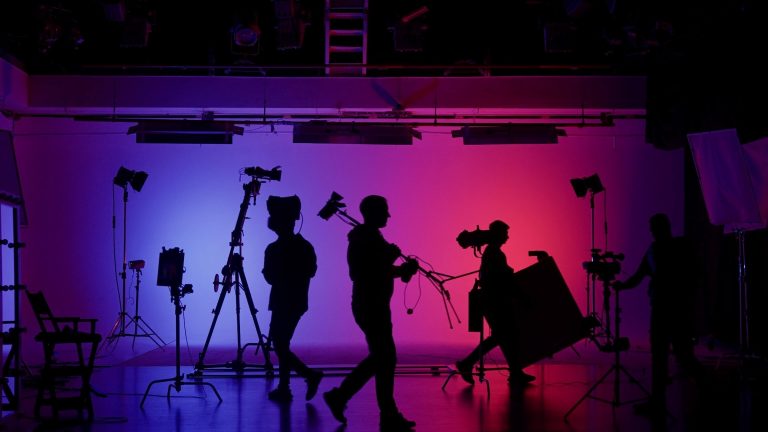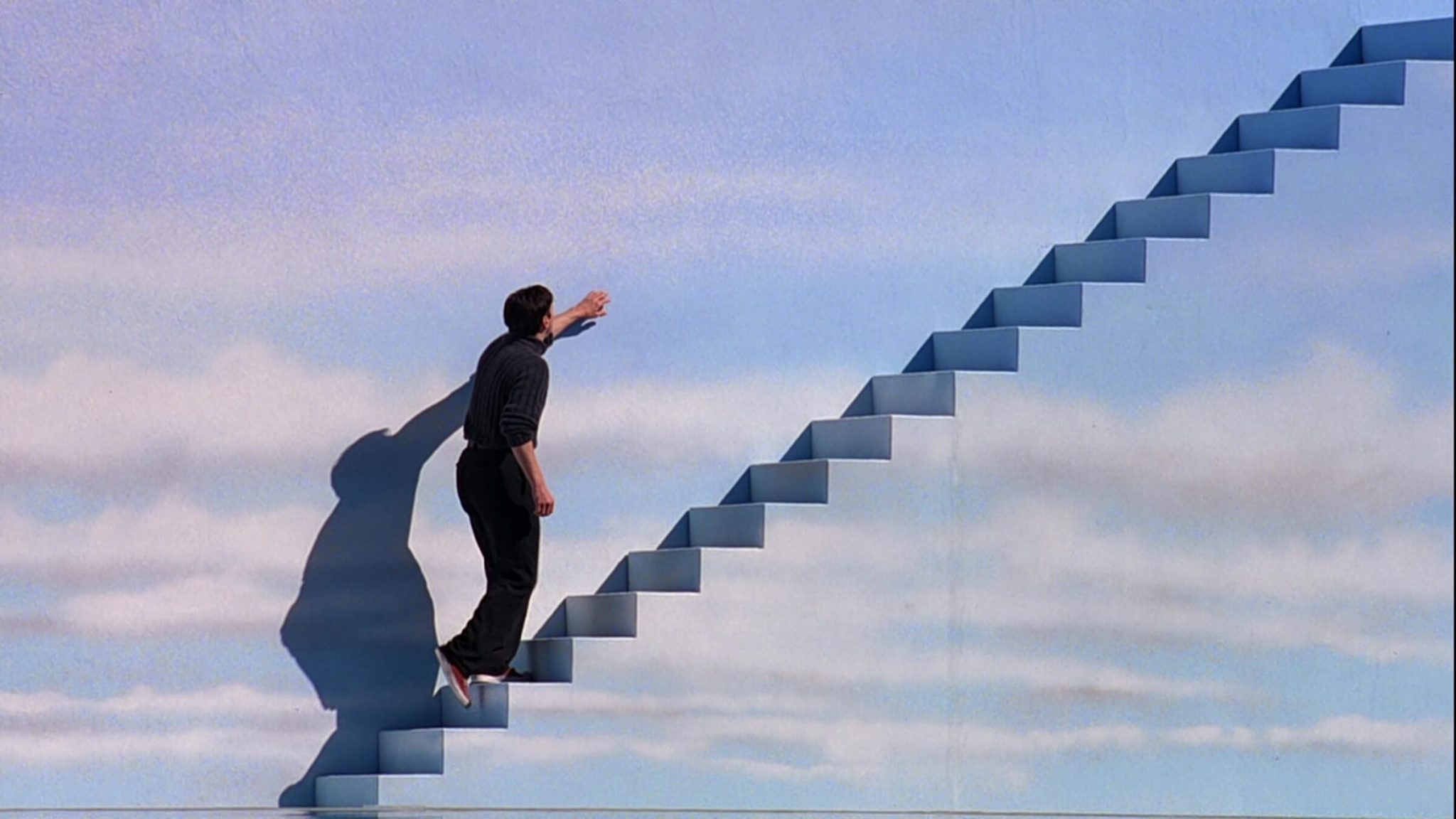How to Choose the Right Movie Genre for Your Concept

Choosing the right concept to develop into a screenplay is one thing — deciding which genre you'll write it as is a whole different puzzle to solve.
It's not enough to just have an idea. Everyone has ideas. Just walk into a crowded Starbucks in the middle of Santa Monica or Hollywood and scream, "Who has an awesome idea for a surefire hit of a movie?!" Cue dozens of people rushing towards you to share their brilliant ideas.
So you think you have an excellent concept for a movie — wonderful. But it's not time to start writing yet. And we're not talking about development, outlines, treatments, or your overall writing process in general.
No, we're talking about a question you have to ask yourself before you even begin to think about starting any of that.
"What is the genre or subgenre umbrella that this concept falls under?"
It's a significant question that you have to find an answer for. Some may ask, "Well, won't the movie concept dictate what the genre is?"
It's a good question. Let's explore that somewhat flawed assumption.
An asteroid is going to impact the earth, and a team is being sent into space to stop it before kills humanity as we know it.
That's a movie concept. It may even work as a logline to a script. But it doesn't necessarily dictate the genre and subgenre. In 1998, two movies debuted with that very same premise — Armageddon and Deep Impact. But both of them were very different films written under very different genres and subgenres.
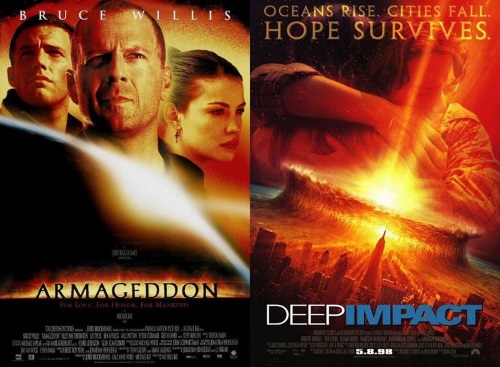
Armageddon was action comedy mixed in with science fiction adventure.
Deep Impact was a drama mixed in with science fiction.
They handled the same premise in many different ways.
Armaggedon focused on big laughs, sweeping romance, high-octane action, and special effects-driven space adventure.
Deep Impact focused on the drama of losing loved ones amidst the genuine and scary thought that our world could end due to circumstances out of our control. Yes, we had trailer moments of major tsunami floods killing millions, but the focus was on the drama.
And yes, Armaggedon certainly had dramatic moments, but the action, thrills, and special effects sequences overshadowed them.
These two films are perfect examples of how screenwriters can handle the same movie concepts in many different ways.
Almost Every Concept Has Multiple Genre Possibilities
Jumping into the writing process is easy. You have this idea that is high concept or at least something that is engaging. You're excited, and you want to write it.
But you have to learn to stop and avoid cheating yourself out of a decision that could make that concept even better — deciding what genre and subgenre to write it as.
Matt Damon and Ben Affleck initially developed Good Will Hunting as a thriller about a blue-collar mathematics genius that was being pursued by the government recruiting him to be a crypt-analyst spy.
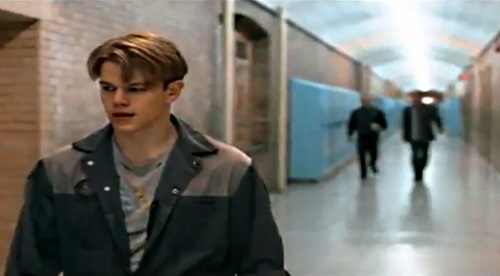
Rob Reiner reviewed the script. He immediately told Damon and Affleck to get rid of the FBI plotline and focus on the characters.
Later on, legendary screenwriter William Goldman was given the same draft of the script to read and review in a single day. When he sat down with Damon and Affleck, he said, “Rob’s right. Get rid of the FBI stuff. Go with the family, go with Boston, go with all that wonderful stuff.”
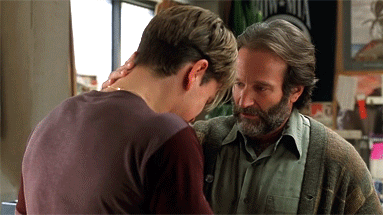
The script went on to win an Academy Award.
Could it have been successful as a thriller? Sure. But that simple choice of changing the focus of the script to the characters and their dramatic arcs dictated the genre switch.
Sure, there are the funny concept versus genre choice examples that make us laugh (although they do manage to prove this point well)...
Concept: Overprotective, single father falls into dangerous situations in search of an abducted child.
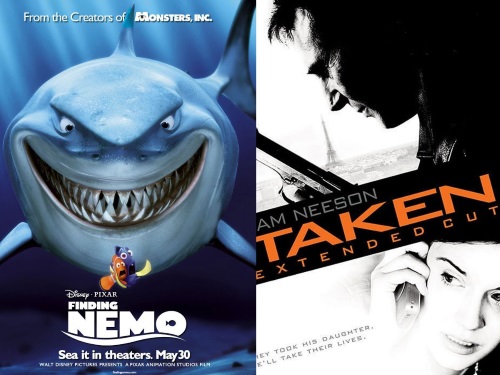
Concept: A man is integrated into the life of natives as he learns more about their true culture. He later becomes one of them— and falls in love with one of their own — and fights with them against those trying to take advantage of their land and resources.
![]()
And our favorite hilarious example...
Concept: An unplanned pregnancy leads to a sticky situation.
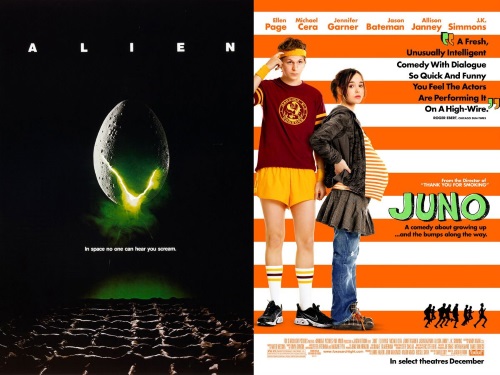
(Examples are taken from the Reddit thread What's a TL;DR that could apply to two completely unrelated films?)
... but the truth is that this decision of what genre or subgenre your script will fall under is essential. It will be vital to the tone, atmosphere, characterization, and story arcs of your eventual screenplay. It will be critical for the marketing and market potential of your eventual screenplay as well.
If you choose to write a dramatic version of your concept, the characters and their arcs will take center stage as you focus on the cathartic aspects of the concepts.
If you choose horror, some of that characterization will be either pushed aside by or paired with psychological or physical horror moments.
If you choose suspense thriller, the plot often takes center stage as the characterization amplifies the suspense and thrills within the scripts.
If you choose comedy, the tone shifts away from the dramatic aspects of the premise and focuses on the hilarious elements of the characters in that situation.
Takes a concept like the one found in Bruce Almighty.
Concept: A guy who complains about God too often is given almighty powers to teach him how difficult it is to run the world.

As scripted and produced, the comedic elements of this premise are the main focus. Yes, the script does offer some dramatic elements, but since this is a film starring one of cinema's comedic greats, the comedy takes center stage.
The concept could have easily been developed with the focus on the dramatic elements of the scenario, perhaps as a faith-based drama.
Almost every original concept can be handled in multiple ways. And deciding which genre or subgenre that is right for the story you want to tell is one of the most important decisions you'll make as a screenwriter.
How Do You Choose the Right Genre or Subgenre for Your Idea?
There's no single answer. However, the first step to accomplishing this is to realize that you have to explore this concept you've conjured backward, forwards, and inside out before you commit to a genre or subgenre.
The second step is to ascertain what type of tone you want this script to have.
If you want a dark and moody tone, you'll likely have to turn to horror, Gothic horror, or even film noir.
If you want an upbeat and uplifting tone, you'll go to comedy or romantic comedy.
If you want a roller-coaster thrill ride, you'll go the action and adventure route.
And yes, you can undoubtedly meld two genres or subgenres together. However, you do need to avoid the mistake of having to pitch your project as, "well, it's a mystery set in the future with a film noir-like atmosphere that also has laughs, romance, and lots of action."
That's an agent or manager nightmare. In the end, film is a business. And in this business, studios and production companies need to be able to sell their product to a specific target audience. If you create a hybrid of two successful genres, yes, you can bring two types of target audiences into the mix. However, if you're spreading your concept thin with many blended genres and subgenres, you're going to slowly start to alienate not only who the target audience could possibly be, but also who is willing to represent a screenplay that has a lack of focus. Your screenplays cannot be a little of everything. Sadly, that's not how it works.
Your script can be a drama that has some humor and romance in it.
Your script can be a horror script that has some laughs.
Your script can be a science fiction story with dramatic characterization.
But it cannot be an action/mystery/adventure/horror/comedy/drama.
So that second step of deciding upon the tone can help dictate at least part of your genre or subgenre choice.
The third step is to identify what genres and subgenres are out there. Do you know the differences between Science Fiction and Science Fantasy? Do you know the many subgenres of the action, horror, thriller, drama, and comedy genres?
Read ScreenCraft's Do you REALLY Know What Genre Your Screenplay Is?
The fourth step is to look at your concept's story and find what elements stand out the most. Does the romance dominate the story and characters arcs, or is it the mystery that better represents the core concept? Who are the protagonists? What conflicts are they facing? What type of adversaries are they going up against?
When you explore your concepts and ideas, you'll find that particular elements stand out more than the rest. And those elements will often decide what genre and subgenre you should be writing under.
The fifth step is to do your research and find out what else has been made, what else is in production, and what hasn't been done before. If you find out that a popular drama has a similar concept, you can take the opportunity to flip that previously delivered concept upside down by placing it into the realm of science fiction, fantasy, or horror.
The Big Chill was about a group of seven former college friends that gather for a weekend reunion at a South Carolina winter house after the funeral of one of their friends. If you had a similar concept, it's been done before in the drama genre.

But what if you had seven astronauts dealing with the death of one of their own after a tragic accident in the International Space Station or on an inaugural space flight to Mars?
Or what if seven friends rented an old house for a high school reunion only to realize that it's haunted?
These are either horrible or brilliant examples, but the point is to consider all options when it comes to genre and subgenres.
The sixth and final step is to decide what your plans are for after the script has been written. Are you looking to shoot this on your own as an indie film (Drama)? Are you planning to sell it to a major studio as a big budget tentpole (Action)? Are you hoping to better your odds of finding someone willing to produce it (Contained Thriller, Horror, or Science Fiction)?
In your eyes, what's the end game?
These are all of the things you need to be thinking about as you develop your concept. You need to look at all of the possibilities.
The choice of what genre you choose — or a blending of two — will dictate the tone, atmosphere, characterization, and pacing of your screenplay. It will be the story and character compass leading you to the best script structure.
It will decide if your math genius is going to be battling his own personal demons or running from government spooks.
It will decide if your characters are going to be dealing with the realization that they'll never see their family again or if they'll be flying through space in a suped-up space truck or riding a nuclear warhead like a stallion.
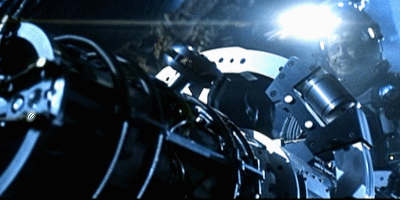
For more on the subject of exploring your concepts more deeply, Read ScreenCraft's Five Ways to Reconceptualize Your Conventional Screenplay!
Ken Miyamoto has worked in the film industry for nearly two decades, most notably as a studio liaison for Sony Studios and then as a script reader and story analyst for Sony Pictures.
He has many studio meetings under his belt as a produced screenwriter, meeting with the likes of Sony, Dreamworks, Universal, Disney, Warner Brothers, as well as many production and management companies. He has had a previous development deal with Lionsgate, as well as multiple writing assignments, including the produced miniseries Blackout, starring Anne Heche, Sean Patrick Flanery, Billy Zane, James Brolin, Haylie Duff, Brian Bloom, Eric La Salle, and Bruce Boxleitner. Follow Ken on Twitter @KenMovies
For all the latest ScreenCraft news and updates, follow us on Twitter, Facebook, and Instagram.
Get Our Screenwriting Newsletter!
Get weekly writing inspiration delivered to your inbox - including industry news, popular articles, and more!




















